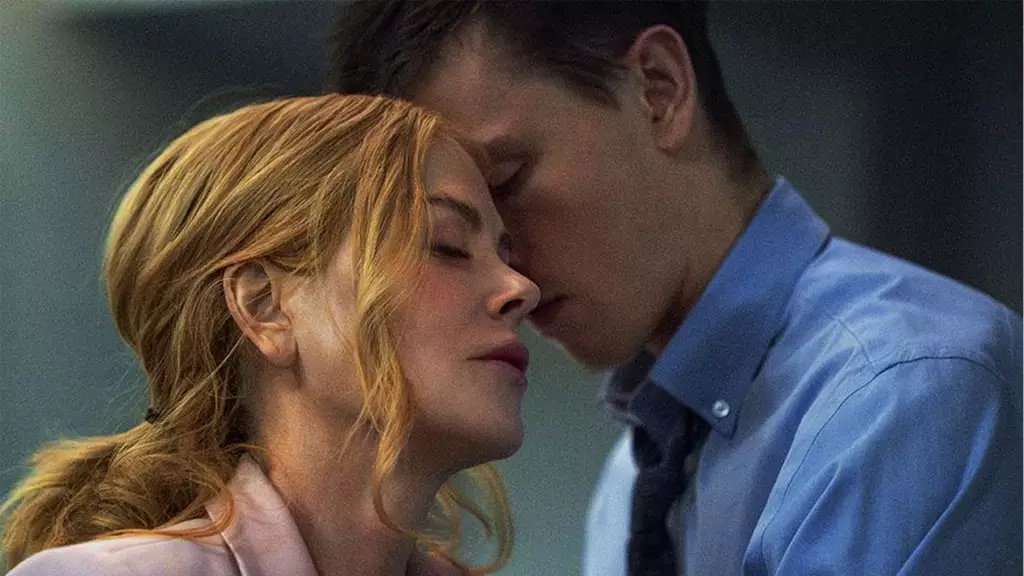In the realm of film, the interplay between reality and fiction often yields some of the most captivating narratives. Halina Reijn’s recent creation, *Babygirl*, exemplifies this phenomenon, especially in a specific scene that has become a talking point among audiences and critics alike. The scene in question features Harris Dickinson’s character, Samuel, who submits the unconventional request for his boss, Romy (played by the illustrious Nicole Kidman), to drink a glass of milk at a bar. This moment, as Reijn herself divulged, was ignited by a personal experience, suggesting that sometimes truth embodies a vicarious heat that scripted fantasy can scarcely replicate.
Reijn’s selection of milk as a central symbol is noteworthy. Traditionally, milk evokes images of purity and innocence; yet, within the context of this narrative, it morphs into something much more profound—an embodiment of primal desire. As she articulated in her conversation with IndieWire, the act of a younger man presenting this seemingly mundane beverage transforms the dynamic between the two characters. It’s a moment that transcends simple physical interaction; it encapsulates the essence of animalistic attraction rooted within human nature.
Furthermore, Reijn’s recollection of her real-life encounter—a poignant blend of intimacy and discomfort—highlights how she seeks to connect intellectual stimulation with physical attraction. Her choice to frame this act of ordering milk as captivating is a deliberate subversion of expectation. In her memory, the attention of a desirable younger actor catalyzed a form of arousal that was less about physical touch and more about the power of suggestion and psychological interplay.
Reijn’s exploration of desire is not merely surface-level. It beckons to the deeper, often unexamined aspects of human sexuality that frequently remain neglected in mainstream cinema. The director expresses that genuinely shocking sexual experiences don’t necessarily adhere to conventional depictions of bodies entangled in explicit actions. Instead, she suggests that true eroticism often dwells in the abstract—it’s found in the mind’s eye where imagination creates richer textures of desire.
Romy’s subsequent actions—crawling across a stained carpet or indulging in a piece of candy—expose the juxtaposition of dominance and submission. This intimate choreography of suggestion reveals a rawness often lost in the glorification of physical interactions. Reijn, in her storytelling, emphasizes the allure found in vulnerability, insinuating that the real thrill lies in the unspoken, the implications, rather than explicit exchanges.
*Babygirl* stands as a testament to the evolving narrative landscape where female-centered stories shine with complexity and nuance. Traditionally, the portrayal of female characters in sexual contexts has leaned heavily toward objectification or passivity. However, Reijn’s work champions a different paradigm—a high-powered woman navigating the maze of power, allure, and personal ambition. Romy is not merely an object of desire but a character shaped by her choices and vulnerabilities within her workplace hierarchy.
Furthermore, Reijn’s acknowledgment that much of her writing process draws from personal experience grounds the film in authenticity. This blurring of the lines between the creator and her creation makes the narrative resonate on a more profound level. It prompts audiences to reconsider what they understand about eroticism and the power dynamics inherent in relationships.
Reijn’s assertion that real intimacy often lies beyond physicality speaks volumes about the role of imagination in erotic storytelling. In an industry that often favors explicit acts, her narrative choice to limit such expressions reinforces the idea that true connection lies in the subtleties. Lovers often navigate a complex dance filled with suggestions and innuendos that elicit anticipation and excitement without ever crossing physical boundaries.
Ultimately, Halina Reijn’s *Babygirl* invites viewers to engage with desire not just as a base instinct but as an intricate web of thoughts, fantasies, and connections. By stripping away the layers of overt sexualization, she highlights the beauty found within the subtlety of human interaction. It’s a refreshing perspective in contemporary cinema that celebrates the intelligence of emotion, making the act of storytelling itself an intimate encounter.


Leave a Reply